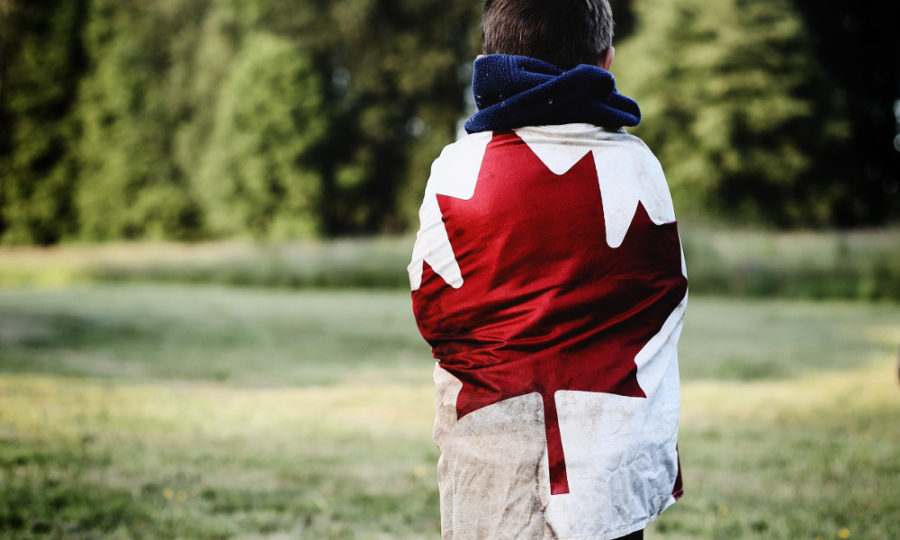For professional and personal reasons, this week I’ve been thinking about what it means to have status within a political community.
It just so happens that events in my personal biography have corresponded with two days calling for attention to status in various respects: Wednesday was World Refugee Day, and yesterday was National Indigenous People’s Day in Canada. (I’m celebrating the latter belatedly by attending the Faculty Association’s Reading Circle on Indigeneity and the University today from 2:30-4:30 in the Grad House Boardroom.)
I’m (almost) permanent.
It didn’t take a long time.
Yesterday was also the day that I received in the mail my confirmation of permanent residency status. After spending about 30 minutes on hold on the phone, the Kitchener Immigration Office has been informed that I need a landing appointment. In 3-4 weeks, I should have an one scheduled.
Varying timelines
I submitted the initial documents to be invited to apply for permanent residency in December 2017. If we count from the time I began taking steps towards PR status (e.g., taking my English language test), I will likely get PR status close to within a calendar year. It will be either just over or just under a year.
In Women’s Studies 101 this past term, we discussed transnational families, focusing on women who came to Canada as live-in care workers. The published processing time for PR applications from live-in caregivers (after living and working in Canada for two years) is 47 months. Processing time for family members is 70 months.
It can take 38 months for refugees’ dependents applications to be processed, allowing for famuly reunification.
On difference and belonging
A DNA scam
On Thursday morning’s Canadaland Shortcuts episode, Jesse Brown and Jan Wong discussed the scandal around the Toronto DNA testing company Viaguard Accu-Metrics. The company has seemingly provided false results to people (and to chihuahuas and poodles, who helped discover the problem), indicating that they were 20% indigenous in genetic heritage.
These results enabled people to obtain a card from the Confederation of Aboriginal People of Canada (CPAC). A CPAC card is not a status card, but can be confused for one. I want to bracket many interesting aspects of the scandal for now, and ask a question about sameness.
This story struck me because I’m beginning a new research project that looks at how family serves as a metaphor and an organizing principle for political belonging. (I hope to be able to announce some big news on this front soon, but for a sneak peek about the subject matter, see this previous post and this one too).
Anxieties of sameness
What anxieties are expressed if settler Canadians need to feel “part Indigenous”? Does feeling as if Indigenous people belong to their genetic family motivate settlers to address ongoing colonialism in Canada? Is that a dangerous sentiment? (Yes.)
Feminists are used to critiques of the kind of identity politics that asks all to be the same. Instead, I find more hope in for appreciating difference and for identity politics if transformed into what Mariana Ortega calls a coalition politics.
Do we have to be the same to be a “we”?
The insufficiency of organizing around sameness was a theme that emerged again in the most recent episode of On Being, which focused this week on Hannah Arendt and refugees (and touches on many themes relevant to the new research project I mention above). I want to include an excerpt from the interview transcript below.
LYNDSEY STONEBRIDGE:
Yeah. It reminds me very much of when Arendt went back to Germany to collect the Lessing Prize, which she was given. She gave a speech. And Lessing was this great humanist and great believer in dialogue. And one thing she said to her audience, “I’m talking to you as a Jewish person. You need to take that on board.” And what she said — what would not have been helpful during the Third Reich is to say, “Jews and Germans are part of the same humanity. We all love each other.” She said, because that would have been to totally disregard the reality that you’re living in a political system that says that one of you is not.
Far better, she says, to say a German, and a Jew, and friends. So you acknowledge the reality of the racial politics, that is making an idea of a shared humanism impossible. But you’re maintaining its possibility by acknowledging that reality and doing your stuff in spite of that. And I think that there’s something in your story and in Arendt’s story there which does resonate.
She would have been very suspicious of a false type of humanitarianism that tried to pretend that the politics of race weren’t violent and horrible and real — and real in a lot of ways that are unimaginable for a lot of people, but, you acknowledge that, and then you say, and still: and still we’re going to sit in this studio together, and still we’re going to read this text together, and still we’re going to do this together. The kind of toughie in me wants to say you stick with that reality.
KRISTA TIPPETT:
It was both/and, right? Again, it’s thinking. It is allowing the complexity of reality in. And it’s always messy.
Yes, it’s always messy. Bureaucracy is messy, but in ways that reinforce inequalities. What I want is a political community where who we are together cannot be reduced to something like a shared identity. Where sameness should be relevant is in equality; we are all the same in granting and acknowledging the equality of others.
